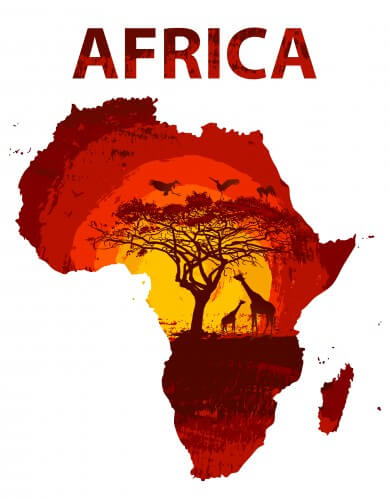One of the participants in the conference was Elizabeth Mrema, Elizabeth was born in a small village at the foot of Kilimanjaro and today holds the position of Director of the Department of Environmental Law Enforcement at the UN. As a native of East Africa, Elizabeth describes the situation in her environment and I will add comparisons to our country and our environment

On 05/10 the Convention on Trade in Endangered Species (cites) conference ended with partial success. The most prominent issue was the demand of the East African countries to give elephants full protection by transferring them from Appendix 2 to Appendix 1, i.e. an endangered species. Those who opposed were the countries of Southern Africa, but those who tipped the scales against the upgrade were actually the countries of the European Union. So is the fate of the lions that were not elevated to Appendix 1 due to the opposition of the European Union.
Still a partial success since a total ban on trading in ivory was announced, as well as a ban on trading in parts of lions and tigers (furs, antlers, teeth, bones, etc.).
Among the species that have entered the "Annex" and thus receive additional protection: Rhinoplax vigil whose beak is used as a "substitute" for ivory carving and therefore its population is damaged and reduced. Shark and manta species have been added to Appendix 2, which results in additional protection by restricting, monitoring and regulating fishing and trading in them. Other species whose protection has borne fruit have been moved from Appendix " to Appendix 2, which shows that the Convention's activities also have successes.
One of the participants in the conference was Elizabeth Mrema, Elizabeth was born in a small village at the foot of Kilimanjaro and today holds the position of Director of the Department of Environmental Law Enforcement at the UN. As a native of East Africa, Elizabeth describes the situation in her environment and I will add comparisons to our country and our environment.
Elizabeth begins her book about how in the village where she was born, global warming caused the watercourses to dry up and the residents dig wells and irrigation canals, in our country - desalination plants provide more and more drinking water consumption, but the southern Jordan is dry and, like it, springs and streams throughout the country.
Elizabeth refers to many species that are in danger of extinction, among other things, because of wild hunting and the reduction of habitats, at the same time "more people cultivate less land" because of the impact of global warming and there are more periods of drought. In our country - agriculture developed and "conquered" desert areas until the government began to "put feet" on the farmers and today (no shame and no shame) more and more agricultural areas that were a symbol and example are being abandoned and drying up.
Elizabeth explains that environmental crimes, which increase by about 6% every year, are ranked fourth in the world, starting with the poaching of elephants and rhinos and continuing with the black trade in drinking water, when a resident of a slum in Nairobi pays more for water than a resident of New York. When a natural resource is taken without punishment, nature suffers and people suffer. Environmental crimes take away income from people and governments, here - there is a national price for water, but there are also "piracy" wells and pumps.
Elizabeth points out that unregulated garbage disposal causes pollution to the soil and water sources. With us - garbage dumps pollute streams and springs, existing (and former) factories pollute the soil, the air and the water bodies, such as the Ta'esh factories in the center, in Zan in Haifa and others.
Elizabeth warns against illegal mineral mining. With us - the place of the state began (and even before) sand and sand were stolen from the beaches, a robbery that continues even today.
Elizabeth points to the damage to the forests due to the demand for coal, damage that leads to air pollution, according to the World Health Organization approximately 7 million people die each year due to air pollution. With us - coal plants in the Triangle and the West Bank cause air pollution that endangers residents.
Elizabeth points out the danger of wild fishing, which harms the livelihood of traditional fishermen. In our country - very late and with insufficient enforcement, a ban on fishing in certain seasons and with destructive methods was published.
Elizabeth, who comes from an area that is considered "developing", calls for stopping and uprooting environmental crimes since every resource that is taken away detracts from the public, "it is not just about saving well-known animals and plants, but about saving people from poor living conditions". ,
In our country - a "developed western" country and yet the question remains who is doing more and where will we do more for the environment and man?

One response
Specifically in Israel, the problem with water sources is poor management, not necessarily climate change.